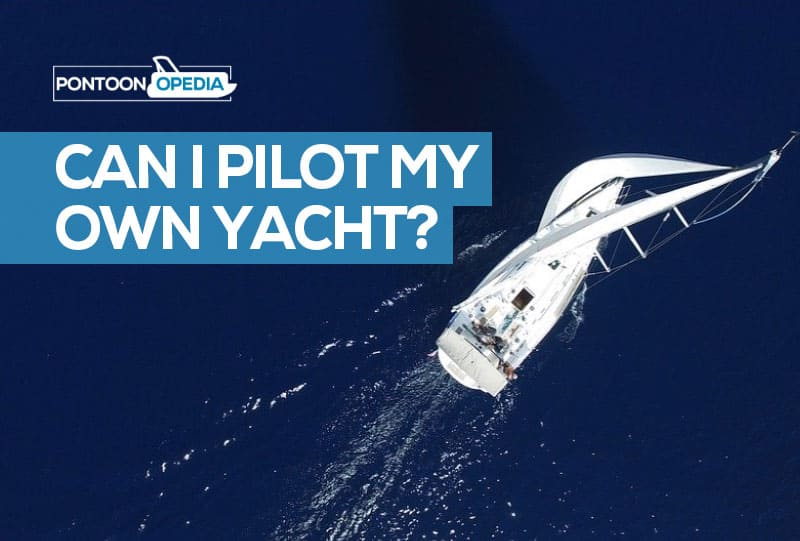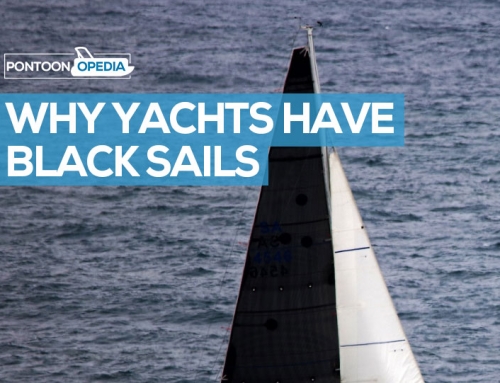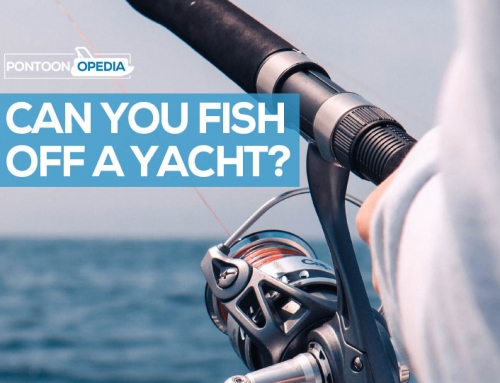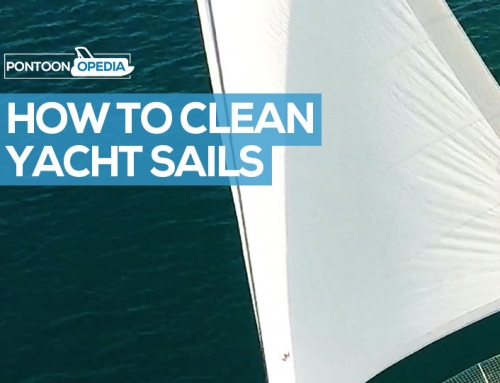So, you enjoy escaping your hectic career for the open sea, but can you pilot your own yacht? Piloting large vessels can be challenging for inexperienced mariners, and when you have a few extra hands, emergencies can be remedied with less difficulty.
Can you pilot your own yacht? If you’re an experienced captain who regularly pilots large yachts, a solo trip is entirely possible. However, vessels over 75 feet are more challenging to maintain alone, and some states require captains to employ a crew for a yacht that is over 50 feet long.
Cruising on open water offers the freedom you can’t experience on land. Although there are regulations, certifications, and local laws (when you’re close to land) to follow, captains are free to go where they want at whatever pace they choose.
Yachting is an incredible adventure for passengers who enjoy lounging in the sun and visiting new towns and countries. However, the crew hired to maintain the vessel must be well trained and experienced.
Handy Hint: Here’s a previous guide which explains what size yachts require crews and a captain.
Yachts range in price from the low 100,000s to several hundred million, and insurance companies often refrain from approving policies for large yachts that lack an experienced crew.
If you’re interested in piloting your ship without a captain, you must decide how large of a vessel you can handle alone, where you’re traveling, how long you’re traveling, and how experienced your guests are with procedures and maintenance.
Table of Contents
What to consider when you want to pilot your own yacht
There are several factors to consider before you decide to pilot a yacht without a captain. The following list includes some questions to ask yourself before leaving port.
- How much experience do I have on the water?
- What is the largest vessel I piloted?
- How long is the trip?
- Am I traveling near the coast or deep into international waters?
- Are my guests trained for safety or maintenance duties?
- Am I piloting a sailing yacht or solely relying on the engine?
These questions are essential to answer before planning a trip. Most experienced captains do not recommend sailing or motoring alone in international waters.
Seasoned mariners admit, from personal experience, that piloting large vessels over 75 ft are challenging trips without a first mate or crew.
Experience on the water
Your experience level is the single most important factor when considering whether you’re ready to pilot your vessel alone. Yacht sellers aren’t required only to sell vessels to experienced captains. If you have several millions and you want a yacht with a helicopter pad on deck, it’s yours.
However, if you have limited experience, an insurance company will not ensure your large yacht. Large vessels require more maintenance and knowledge to run. If you run into a mechanical or safety issue that no one on board is qualified to handle, your yacht will be dead in the water.
Yacht size
Experts recommend that you should not pilot a yacht over 75 feet without a crew. That recommendation is based on the assumption that only experienced captains should even attempt to handle a ship of that size without assistance.
Handy Hint: If you are unsure about what qualifies a yacht, check out this guide which explains when a boat becomes a yacht.
If you don’t have a captain’s operating license or master license, you should not pilot the yacht at all. Larger yachts are more challenging to maintain and pilot. Maneuvering a 120-foot yacht around channels and tidal currents takes skill, patience, and a firm knowledge of the area’s waters.
A captain’s license is not issued to just anyone. It takes time to qualify for the certification, but it’s not unattainable for those who are serious about spending their lives on the water.
For under $1,000 and a few weeks of your time, you can get a captain’s license and continue to gain crucial experience on the open sea.
To qualify for a license, you need at least 360 days on the water.
Travel length
The length of your trip is an important factor when determining how much assistance you’ll need on a yacht. Unfortunately, longer trips have the potential for more things going wrong. Regular maintenance of a yacht is essential if you want to stay safe.
Minor repairs are usually part of a long journey, and the occasional emergency or hazardous storm are also more likely to occur when you spend several weeks or months on the water.
Travel destination
Are you planning a short jaunt around the Intercoastal Waterway, or are you sailing around the coast of Monte Carlo? The destination and the route you take should influence the size of your crew.
You’re safer in potentially hazardous waters if you have experienced crew members who can pilot the yacht or assist you in an emergency. Experienced captains know which areas have dangerous tidal currents and which bodies of water are frequented by pirates.
If you’re unfamiliar with a particular location, you should receive assistance from a captain or first mate who has traveled the area on previous trips.
Passenger skill levels
If you’re planning on piloting your yacht without a professional crew, you should find out if your guests are willing to perform some of the duties usually reserved for crew members. Crews maintain the yacht by cooking, cleaning, making minor repairs, and responding to emergencies.
Yacht crews are highly skilled workers who carry a number of safety and mechanical certifications. On a long trip, your guests should enjoy themselves but should also contribute to the necessary tasks required to run a safe ship.
Find out what skills your friends possess and designate duties to each person. Yachts take a great deal of work to maintain, and if your guests are unwilling to lend a hand, you should hire a professional crew.
Sailing or motoring?
If your yacht is a sailing vessel, you should have guests on board who have experience working the sails. It’s feasible to pilot a yacht while your partner or significant other handles the sails, but it’s more practical to have a few people familiar with sailing procedures to help sail your yacht.
If your partner falls and sprains an ankle while running around the deck, you’ll need someone on standby to take over. The expression “safety in numbers” is especially true on a yacht trip. When several people who have experience and training on your trip, the journey is safer and more enjoyable.
Taking turns and working in shifts will enable your guests to enjoy the adventure fully.
What qualifications you need to pilot your own yacht
There are various certifications you will need to pilot your own yacht. Once you have learned the basics, you might also want to explore the following.
Certifications
There are two types of captain’s licenses, and you have to decide which one suits you. Although it might take you a few weeks to become certified, you’ll become the captain of the ship who is qualified to carry guests and possibly make some extra money on the side.
Operator license
An operator’s license allows captains to carry six or more passengers on uninspected vessels for up to 100 miles offshore. The ships allowed with the license can weigh up to 100 gross tons.
Master license
A master license allows a captain to carry seven or more passengers on inspected vessels for up to 200 miles offshore. Most large yacht owners, who enjoy entertaining more than seven people, opt for the master license.
Since property taxes, marina fees, and fuel costs can add up quickly, you might consider charging customers for chartered trips. With a master’s license, you can recoup some of the massive costs of maintaining a yacht.
However, if you have a yacht that is over 75 ft, you’ll have to hire additional crew members to maintain the ship and serve the guests. Paying customers are unlikely to take on the same duties and responsibilities as your friends or family.
Final thoughts…
Being the captain of your yacht may be a dream of yours. All the responsibility of your guests’ well-being will rest on you, and that can be an incredibly satisfying feeling. You will make all of the critical decisions like where to travel and who to throw overboard (maybe that is a pirate captain).
Whether you hire a crew or enlist your guests to help, remember to follow safety procedures, maritime laws, and have a good time – whether you pilot your own yacht or not!






